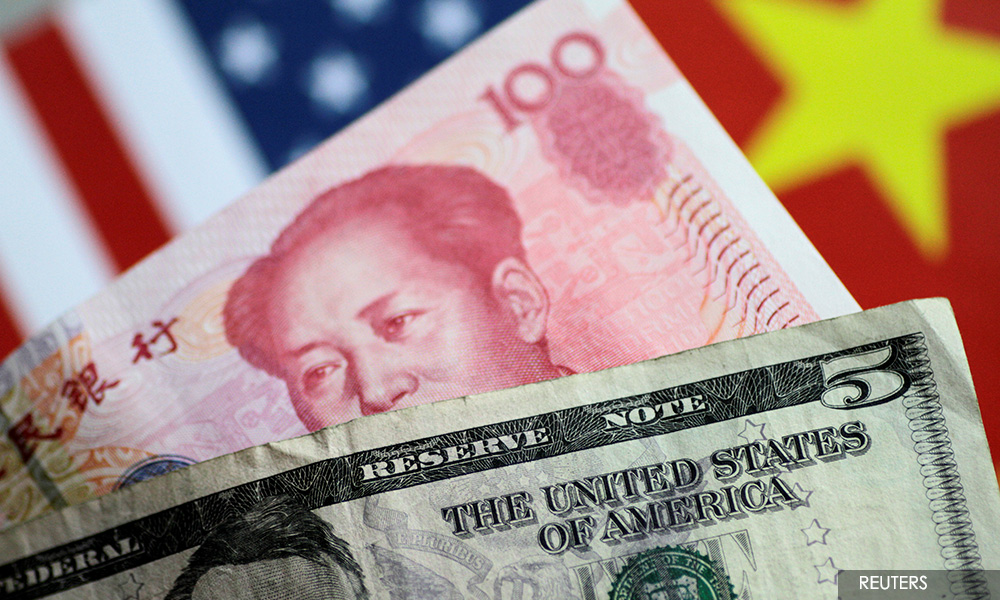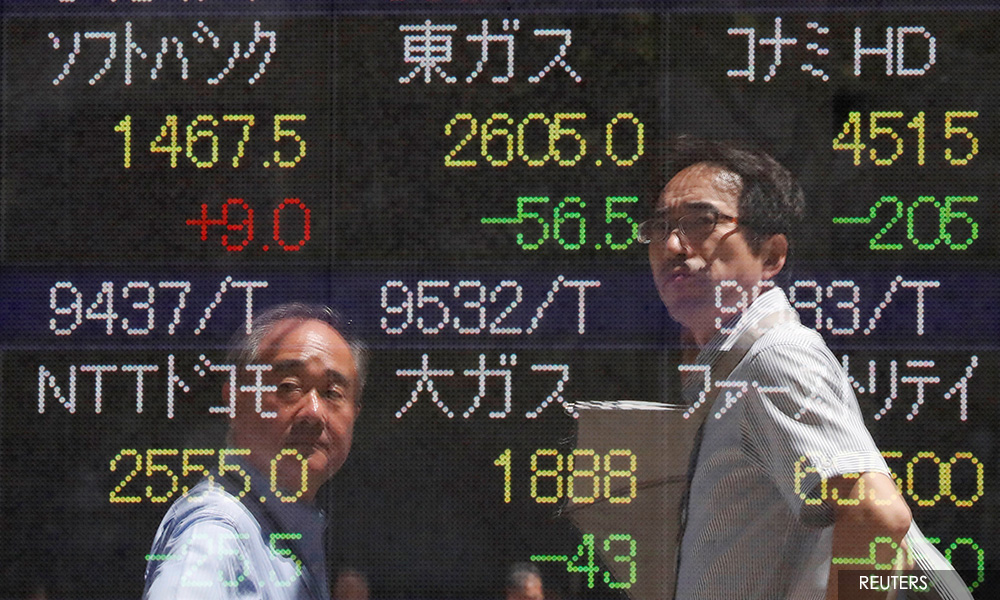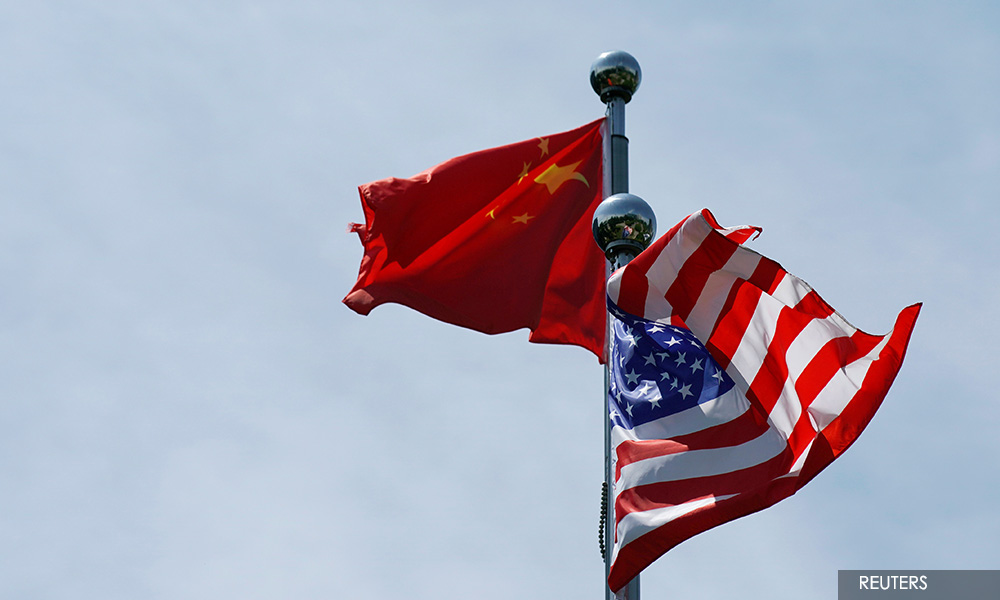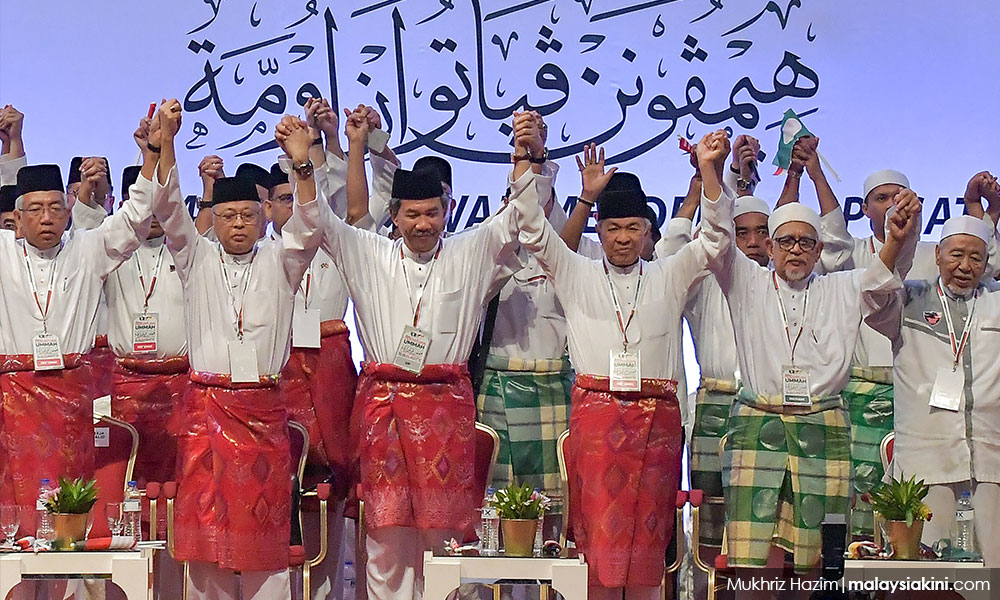
Published by Malaysiakini & Malay Mail, images from Malaysiakini.
China is different. That’s the mantra most Sinophiles repeat with religious zeal.
Chinese banks can grow their way out of bad debts; the renminbi (RMB) can be supported solely by domestic demand, the petroyuan will challenge the petrodollar, and many other financial myths.
Over the last 20 years, these pundits have gathered many sheep to their growing flock. But, in the end, the sad truth is that all sheep must face the knife.
We may be approaching a speed bump in China’s economic “miracle”, thanks in no small part to the world’s greatest reality star playing a central role as its nemesis.
The one international convention Trump has blown up that can be said to be tactical and not just bombastic is his push-back on unfettered Chinese economic expansion.
His “trade war” has tested the key anomalies which have resulted in an unprecedented bubble that China may soon have to reckon with.
For the last 20 years, the US attitude to China was to turn a “blind eye” and allow it ample competitive advantages. Both George W Bush and Barack Obama maintained a consistent policy which facilitated the manufacturing-based export miracle that underpinned the China growth story.
During this time, China expanded its economy to a dollar equivalent of US$12-13 trillion, versus the US’ US$21 trillion juggernaut.
Meanwhile, the Chinese issued some US$23 trillion of RMB with only one percent of global settlements, versus the US$19 trillion US dollar free-float as the world’s de facto means of exchange.

This has created a capital surplus bubble of mind-boggling proportions.
It makes quantitative easing by the US Federal Reserve after the 2008 global financial crisis seems like chump change.
If capital controls were lifted today, the Chinese currency would surely nose-dive, the only question being just how steeply.
Bad debts in the US are approximately 2.6 percent of bank deposits, but in China, the official figure is nine percent if you believe – and you shouldn’t – whatever the Communist Party officials publish; the real Non-Performing Loan numbers are undoubtedly higher.
Among the top Chinese banks, there is very little transparency about this figure, which is why global financial institutions have purposely restricted their exposure domestically in China.
What we do know is that there are few takers of the renminbi outside China, and initiatives such as the Belt and Road project are expressly designed to utilise surplus renminbi in mega-projects where Chinese state-owned engineering, procurement and construction companies lend and spend funds in a closed loop.
Indeed, there are no other big financial markets for renminbi-denominated debt anywhere else.
Despite its best efforts, China is forced to buy its key resources such as oil, steel, and copper in US dollars.
With the yuan at a 12-year low and the trade war costing China some US$200 billion in tariff-driven inflated costs, this is a painfully pinching position despite China’s US$2 trillion in reserves.

The fact is that China realised long ago that it needed to wage an “unrestricted warfare” to reverse its “century of humiliation” by the West.
This is based on a strategy penned by two Chinese professors, Qiao Liang and Wang Xiangsui, in 1999 and has been followed to the letter since then.
In the strategy, the two professors acknowledge that they can only challenge US hegemony by informational and economic means, not militarily.
The Chinese “reef islands” in the South China Sea are one way to get on equal footing, by trying to eventually control the sea through which most of their (and the world’s) goods are transported.
Once again, US President Donald Trump is pushing back on this in a way Bush and Obama never did, and whether he stays in office or not (or, rather, whether he agrees to leave), US policy on this point is not likely to soften.
Leaving any political implications aside – this commentary is solely meant to be economic in scope – it’s clear that the convergence of growing anomalies in China’s export-led “growth miracle” will have to reconcile sooner or later, and the unrest in Hong Kong, though not existentially threatening to its leadership, has unearthed deep-seated challenges which will only be exacerbated by any economic downturn.
From our perspective, while the trade wars have once again replaced China with the US as Malaysia’s largest trading partner, the implications of a correction in China will surely have global implications.
The saying goes that when America sneezes, the world catches a cold. Today, if China coughs, we will all get the flu. Are we prepared?
Dr. Rais Hussin is President & CEO of EMIR Research, an independent think tank focused on strategic policy recommendations based upon rigorous research.
刊登在:星洲网 (Sin Chew).
中国与众不同。这是大多数中国人会以宗教狂热式的口吻重复的话。
中国银行可以摆脱坏账;人民币可以完全由国内需求支撑,“石油人民币”可以挑战“石油美元”,以及许多金融神话。
在过去20年里,这些权威人士聚集了许多绵羊以壮大成群。但是,最终,让人遗憾的是,所有的绵羊都必须死在刀下。
我们可能正在接近加速起飞的中国经济的“奇迹”,这在很大程度上归功于这个世界上最伟大的真人秀明星以复仇者的姿态扮演核心角色。
特朗普炸毁了一个国际大会,可以说这是一个战术且不仅仅是夸大其词,而是他对中国不受限制的经济扩展的反击。他的“贸易战”已经检验了这个主要异常现象,并导致中国可能很快不得不面对前所未有的泡沫。
在过去20年,美国对中国的态度是“视而不见”,并允许他们拥有竞争优势。布什和奥巴马都坚持一贯的政策,促进以制造业为基础的出口奇迹,这也是中国经济增长的基础。
在此期间,中国将经济增长到相当于12至13万亿美元,相比起美国21万亿的世界主宰。与此同时,中国已经发行了约23万亿美元的人民币却只有1%的国际结算,相比起19万亿美元且是全球实际流通的自由货币。
这造成资本溢价泡沫达到让人难以置信的比例。在2008年全球金融危机后,实施量化宽松政策的美联储看起来像个笨蛋。如果今天取消资本管制,那么中国货币肯定会下跌,唯一的问题就是有多险峻。
美国的坏账约占银行存款的2.6%,但在中国,官方数字是9%,如果你相信的话——但是你不应该相信——无论中国共产党官员发布什么;真正的不良贷款数字无疑更高。在中国顶级银行中,这一数字似乎缺乏透明度,这就是为什么全球金融机构有意限制其在中国国内曝光。
我们所知道的是,中国以外的人民币使用人数很少,诸如一带一路等倡议明显是为了在大型项目中利用剩余的人民币,以闭环的方式向中国国有企业的工程总承包借出和使用这些资金。实际上,在任何地方都没有人民币债券的其他大型金融市场。
尽管做出了最大努力,中国仍被迫以美元购买石油、钢铁、铜等关键资源。由于人民币处于12年来最低水平,而贸易战让中国因加征的关税成本导致损失了大约2000亿美元。尽管中国有2万亿美元储备金,但这还是构成了压力。
事实上,中国早就意识到需要发动“超限战”以扭转西方的“世纪的羞辱”。这是两名中国学者乔良和王相穗在1999年所写的策略,并随后出版了多部著作。他们在著作中承认,他们只能通过新讯息和经济手段挑战美国霸权,而不是在军事上。
中国试图通过控制南中国海的“珊瑚礁岛屿”,也是一种取得平等的方式,那里是中国运输商品到大部分国家(以及全世界)的地方。特朗普再次以布什和奥巴马从未做过的方式推翻这点,无论他是否连任(或者,更确切地说,他是否愿意离开),美国在这政策上不太可能会软化立场。
抛开任何政治影响——这篇评论仅限讨论经济范围——显然,针对中国出口带动的增长“奇迹”的异常现象发动的战争迟早需要和解,再加上香港的动荡,虽然没有对其领导层存在威胁,但却深深埋了根,而这将会随着经济衰退而加剧。
从我们的角度来看,虽然贸易战让美国再次取代中国成为大马最大的贸易伙伴,但中国改革肯定会产生全球影响。俗话说,但美国打喷嚏时,世界会感冒。今天,如果中国咳嗽,我们都会感染流感。我们准备好了吗?
莱斯福贤是EMIR Research的总裁兼首席执行官,EMIR Research是一个独立的智囊团,专注于根据严格的研究提出战略政策建议。

